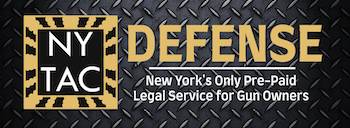Representation.
State of Emergency Executive Orders by the Mayor of New York City
New York Executive Law 24 gives the executives of towns, cities, villages, and counties the power to declare local states of emergency within the jurisdictional limits of their municipalities, and this includes New York City. Mayor DeBlasio has recently instituted a series of executive orders prohibiting travel between 8:00 pm and 5:00 am in order to reduce the state of unrest in New York City. What legal the authority does the Mayor have to make such rules and what are the punishments for breaking them.
Under Executive Law 24, the executive of a municipality has the right to declare a state of emergency. The state of emergency may not last longer than 30 days unless revoked by the executive in control of the municipality, whichever comes first, unless the executive decides the state of emergency must be extended. The state of emergency can be extended 30 days at a time. Declaration of a local state of emergency gives the executive the right to institute local emergency orders that protect the health, real property, and personal property of the population until the emergency is reigned in. Executive law 24 permits local executives to issue the following decrees:
- Curfews may be instituted and automotive traffic can be prohibited except for essential and emergency vehicles.
- Orders forbidding people from entering certain areas or buildings.
- Prohibiting people from gathering in places for recreation, celebration, or assembling.
- Prohibiting or reducing the sale of explosives, alcohol, fire-starting articles, or other weapons.
- Restrictions on who may be in streets or public places.
- Establishing emergency accommodations and emergency hospitals.
- Suspensions of local laws that interfere with emergency responses.
- The executive may also request that the governor release some or all inmates that are housed within their jurisdiction.
- The executive may also request additional funding and support from the state if the ability of the local government to deal with the disaster has been compromised.
If you or someone you know has been accused of violating a mayoral emergency executive order during the COVID 19 crisis call our experienced and aggressive New York criminal attorneys today for a free consultation.
These orders must be published as soon as possible in whatever medium of is reasonably available for the area. These orders are only effective for 5 days, but the executive has the right to extend them for another 5 days if they wish.
Violation of such emergency executive orders constitutes a class B misdemeanor. The maximum penalty for a class B misdemeanor is 3 months in jail or one year probation, and a fine of $500 or double the ill gotten gains obtained through the crime.
The following examples illustrate the distinction between lawful and unlawful local executive orders made under Executive Law 24. Where a slope adjacent to a condominium complex was about to subside, and a local state of emergency was declared; the municipality had executive authority under Executive Law 24. On the other hand, where Suffolk county wanted to test its emergency plan in case of a nuclear meltdown at the local power plant, but the legislature refused to approve the plan constituted a violation of New York’s separation of powers laws because the disaster had not actually yet occurred.
According to Attorney General Guidance, auxiliary police officers can control the flow of traffic during states of emergency and they may also prepare and present simplified traffic tickets.
The most topical of these executive orders is the new set of curfew executive orders by Mayor Bill DeBlasio. These orders proscribe that all persons inside the city limits of New York City remain indoors between the hours of 8:00 pm and 5:00 am. All non-essential travel is prohibited. Only first responders, residents, truck deliveries, essential employees, and the homeless may travel during the curfew period.
If you or someone you know has been accused of violating a mayoral emergency executive order during the COVID 19 crisis call our experienced and aggressive New York criminal lawyers today for a free consultation.

















